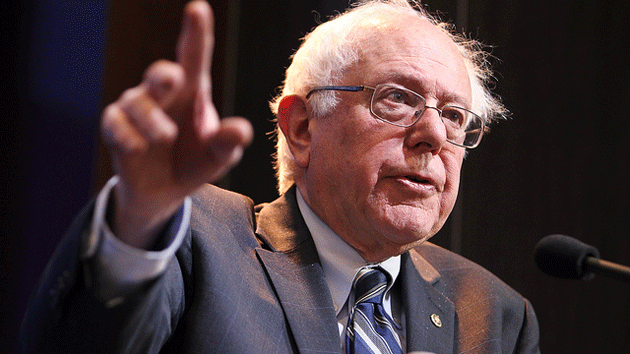Bernie Sanders Offers a Real Solution to Marijuana Prohibition

The prospect of completely removing cannabis from the federal Controlled Substances Act was put on the table.
Marijuana is currently listed as Schedule I in the CSA alongside heroin. This classification is the root of both federal and state prohibition.
The CSA was created in 1970 by Congress and President Nixon. Previous to the drug scheduling scheme the federal policy was the 1937 Marijuana Tax Stamp Act. In 1969 the tax stamp was ruled unconstitutional by the United States Supreme Court in Leary vs The United States.
That case was an interesting story. In 1968 Timothy Leary, better known for LSD, was driving over the US-Mexico border with some friends. When Border Patrol Agents found two ounces of marijuana Leary asked to buy the tax stamp for them. Of course the stamps were never made available to the public and Leary’s lawyers, including Bruce Margolin of Los Angeles NORML had a real case. Following the Supreme Court ruling the federal government struck back.
When marijuana was placed in Schedule I of the CSA initially it was described as a temporary measure. A blue-ribbon presidential commission was formed to study the correct placement of marijuana in the CSA. In 1971 a group of medical professionals and policy experts convened and traveled the country to investigate cannabis in American society.
Nixon hand picked Raymond Shafer to lead the group. Shafer, a staunch Republican, had just completed two terms as Governor of Pennsylvania. They observed cannabis being used for religion, medication and recreation. When the commission met to write their final report they came to a unanimous conclusion: Marijuana did not belong in Schedule I or in the CSA at all.
The prophetic report called «Marihuana: A Signal of Misunderstanding» reads well even today. Shafer and his fellow commissioners recognized the impact of the previous federal and state prohibition laws. They saw that enforcement came down hard on minorities. While they did not lay out a plan for regulation or sales they were adamant that personal possession be decriminalized at all levels of government. Moreover they concluded that cannabis dependence did not cross over into the definition of «addiction.» In other words they saw the reality and told the truth.
Nixon was not pleased.
When Shafer met with Nixon at the White House in 1972 to deliver the report sparks flew. Nixon would not take on the recommendations. He would not even publish the report. Shafer cut a deal with Penguin Publishers and got 1 million paperback copies of the report out to the public in the following weeks. He held a press conference and urged Congress to consider the conclusions. But to no avail.
Marijuana stayed in the CSA and as Schedule I. States then adopted local drug scheduling laws to mirror the federal policy. The US also pushed the United Nations to adopt the Single Convention on Narcotic Drugs in 1971 based on the drug scheduling, effectively taking marijuana prohibition global.
Sanders is correct that states do not truly have the freedom to enact local regulations for cannabis as long as marijuana remains in the CSA. Even moving it down to Schedule II or III would bring about significant difficulties and possible federal interference. De-scheduling is the answer.
When Raymond Shafer came to understand that laws prohibition marijuana cut into a core concept of American liberty. Shafer sought to explain his position in 1972 with words that were both philosophical and poetic:
«A constant tension exists in our society between individual liberties and the need for reasonable societal restraints. It is easy to go too far in either direction, and this tendency is particularly evident where drugs are concerned. We have guided our decision-making by the belief that the state is obliged to justify restraints on individual behavior. Too often individual freedoms are submerged in the passions of the moment, and when that happens, the public policy may be determined more by rhetoric than by reason…
«A premium is placed on individual choice in seeking self-fulfillment. This priority depends upon the capacity of free citizens not to abuse their freedom, and upon their willingness to act responsibly toward others and toward the society as a whole. Responsible behavior, through individual choice, is both the guarantor and the objective of a free society.»
Clearly by reforming marijuana laws we are increasing freedom for all.
Read our digital issue with Sanders on the cover here.

